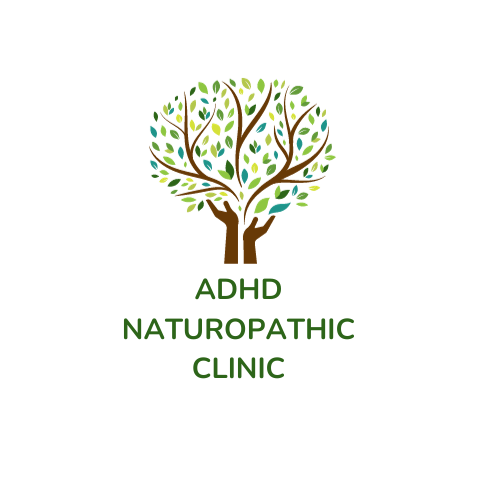As an Herbal Naturopath specializing in ADHD, it's crucial to address the common issue of appetite suppression caused by medications. Many individuals with ADHD find themselves grappling with reduced appetite as a side effect of their prescribed medications. While these medications can significantly improve focus and attention, the impact on appetite can be concerning. In this blog, we'll explore the reasons behind this phenomenon and provide holistic solutions to help individuals regain a healthy relationship with food.
The Connection Between ADHD Medications and Appetite: ADHD medications, especially stimulants like methylphenidate and amphetamine-based drugs, can influence the central nervous system, affecting neurotransmitters that regulate appetite. The suppression of appetite often results from increased levels of dopamine and norepinephrine, which are neurotransmitters associated with ADHD symptom management. While these medications are vital for managing ADHD symptoms, it's essential to address the unintended consequences they may have on nutritional intake.
Holistic Approaches to Boosting Appetite:
- Nutritional Supplements: Research suggests that certain nutrients play a vital role in appetite regulation. Consider incorporating supplements that support appetite and overall well-being. Nutrients like omega-3 fatty acids, zinc, and vitamin D play crucial roles in maintaining a healthy appetite and can be obtained through supplements or dietary adjustments.
- Herbal Remedies: Traditional herbal medicine offers promising avenues for stimulating appetite. Leverage the power of herbal medicine to stimulate appetite. Herbs like ginger, chamomile, and gentian root have been traditionally used to enhance digestion and promote a healthy appetite.
- Balanced Diet and Meal Timing: Studies emphasize the importance of a nutrient-dense, balanced diet for managing ADHD symptoms. Encourage ADHD individuals to focus on nutrient-dense, balanced meals. Eating smaller, more frequent meals throughout the day can be beneficial in managing appetite fluctuations.
Addressing Underlying Factors:
- Gut Health: Research highlights the bidirectional relationship between gut health and mental well-being, including appetite regulation. Investigate your gut health is important, as imbalances in the gut microbiome can contribute to appetite issues. Probiotics and dietary changes that support gut health may have a positive impact.
- Stress Management: Chronic stress can exacerbate medication-induced appetite suppression. Implement stress-reducing techniques such as mindfulness, meditation, and herbal adaptogens to help regulate the body's response to stressors and may aid in regulating appetite.
Navigating the challenges of appetite suppression due to ADHD medications, a comprehensive and holistic approach can offer valuable solutions. As an Herbal Naturopath, addressing the nutritional and herbal aspects while considering individual factors is key. By combining conventional medical management with naturopathic principles, individuals with ADHD can find a balanced approach to support their overall well-being.
Herbal Naturopathic/Nutritional Appointments - in Person and On line
Embark on your holistic healing journey by scheduling an appointment with us at ADHD Naturopathic Clinic (formerly The Green Gingko). As an Herbal Naturopath specializing in ADHD, genetic mutations, and various health issues, we offer personalized, comprehensive consultations tailored to your unique needs. Our approach integrates traditional knowledge with modern understanding, emphasizing the interconnectedness of mind, body, and spirit. Whether you're seeking support for ADHD, exploring genetic mutations, or addressing chronic conditions, we're committed to guiding you towards optimal well-being. Together, let's unravel the intricacies of your health, incorporating herbal remedies, lifestyle adjustments, and evidence-based practices. Take the first step towards a balanced and vibrant life—book your appointment today and embark on a transformative journey towards holistic healing.
References:
- Spencer RC, Devilbiss DM, Berridge CW. The cognition-enhancing effects of psychostimulants involve direct action in the prefrontal cortex. Biol Psychiatry. 2015;77(11):940-950.
- Young SN. Omega-3 fatty acids and monoamine neurotransmission. Prostaglandins Leukot Essent Fatty Acids. 2005;72(4):211-219.
- Izzo AA, Ernst E. Interactions between herbal medicines and prescribed drugs: an updated systematic review. Drugs. 2009;69(13):1777-1798.
- Ríos-Hernández A, Alda JA, Farran-Codina A, Ferreira-García E, Izquierdo-Pulido M. The Mediterranean diet and ADHD in children and adolescents. Pediatrics. 2017;139(2):e20162027.
- Sarkar A, Lehto SM, Harty S, Dinan TG, Cryan JF, Burnet PWJ. Psychobiotics and the Manipulation of Bacteria–Gut–Brain Signals. Trends Neurosci. 2016;39(11):763-781.
- Lopresti AL, Hood SD, Drummond PD. A review of lifestyle factors that contribute to important pathways associated with major depression: Diet, sleep and exercise. J Affect Disord. 2013;148(1):12-27.

